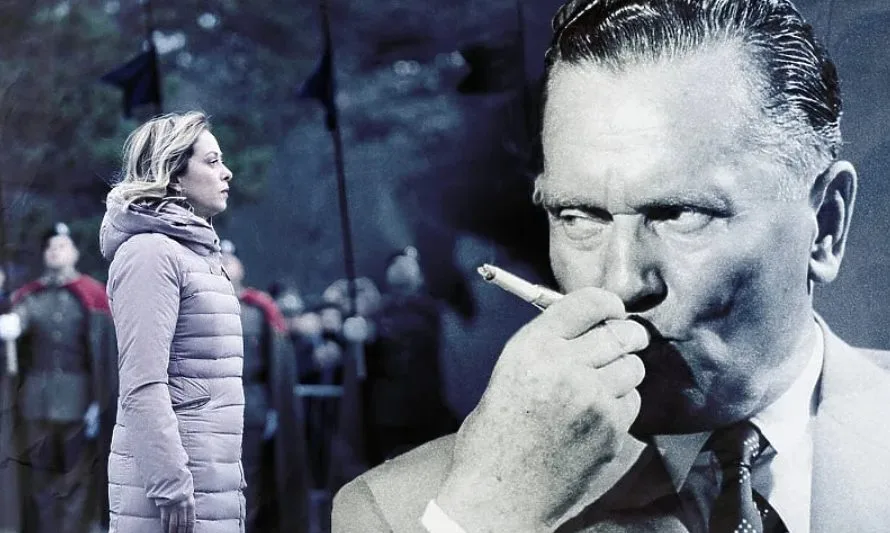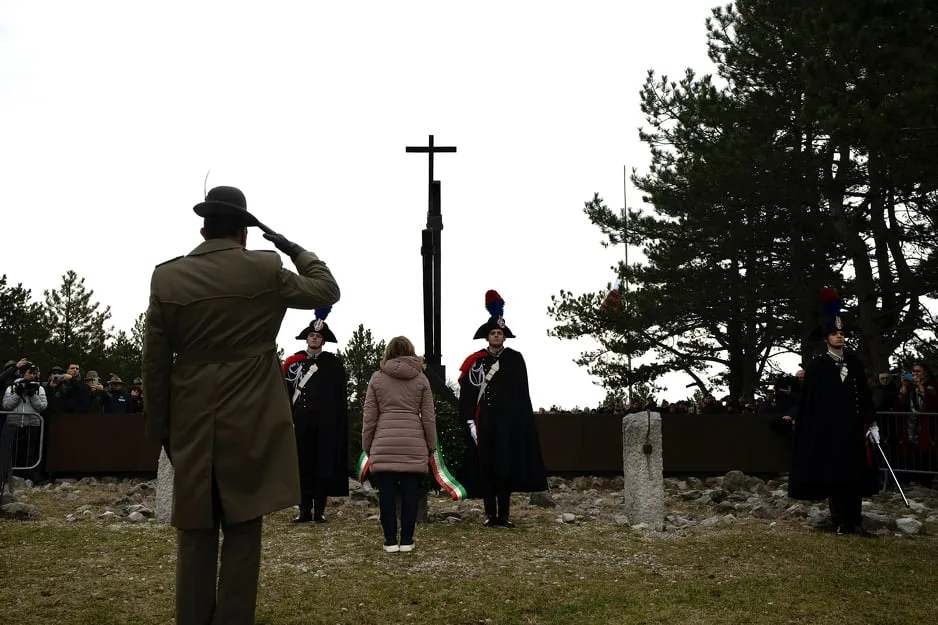 No event or date in Italy sparks such great polarization in the political scene as does the Day of Remembrance traditionally observed in the Trieste area on February 10th.
No event or date in Italy sparks such great polarization in the political scene as does the Day of Remembrance traditionally observed in the Trieste area on February 10th.
The Day of Remembrance for the slain Italians in World War II is an event that brings together Italy’s political elite every year. However, unlike previous years, this time the rhetoric in this country, considering the current political spectrum, has sharpened, particularly directed at Italy’s Prime Minister, Giorgia Meloni.
Specifically, February 10th in Italy is observed as a day of remembrance for the exodus of Italians from the areas of Dalmatia, Istria, and Kvarner during World War II.
The most sensitive part of this issue for decades has been the foibe, or the karst sinkholes in the Istrian region where a certain number of civilians and members of the Italian fascist army were killed during World War II.
The suffering of Italians in World War II in the territory of today’s modern Croatia is defined in two periods. The first concerns the year 1943, and the second after the end of the war in 1945.
For years, numerous historians, scientists, and politicians have speculated on the number of victims, using the foibe primarily as a tool for political struggle.
“Unfortunately, neither the Italian, nor the Croatian, nor even the Slovenian society has done nearly enough on that issue. On the one hand, the issue of foibe was to some extent a Cold War issue until the 1990s, or rather, an issue of demarcation, a very sensitive issue considering the history of relations between Italy and Yugoslavia. However, that does not mean that these Italian-Yugoslav relations did not develop well, certainly better than, for example, French-German relations. It wasn’t such a burdensome issue,” historian Tvrtko Jakovina said for Glas Istre in 2020.
Rhetorical Escalation Since Meloni’s Arrival
Although the foibe have previously sparked a series of reactions in the Italian political scene, it seems that with the arrival of the Brothers of Italy party led by Giorgia Meloni, the rhetoric has been further sharpened, and the foibe have been exploited as yet another battleground for the political left and right of this country to clash.
Meloni’s arrival in the foibe area in Basovizza near Trieste was not just a customary political act but also a strong message that the Italian right-wing wanted to send ahead of the important European Parliament elections to be held in a few months.
Despite Italian officials having commemorated the Day of Remembrance near Trieste for years, Meloni was the first politician to climb the heights of Trieste and send a message to both the Italian left and the supporters of communism.
“I condemn the forgetfulness that has unforgivably lasted for decades. From this place, I return with a few more wrinkles and obligations that I never imagined. Long live Italy,” Meloni stated.
In her speech, the Italian Prime Minister called Josip Broz Tito a “hangman.”
“We pay tribute to all Italians from Istria and Dalmatia who gave up their belongings to preserve the Italian identity. The only thing that Tito’s communists couldn’t take from them,” Meloni declared, once again stirring up the ghosts of the past.

Meloni near a monument near Trieste (Photo: Government of Italy)
Additionally, Meloni reiterated the demand in Trieste to posthumously revoke the Knight Grand Cross Order awarded to Josip Broz Tito by the then Italian President Giuseppe Saragat in 1966.
“I thank the parliamentarians who continue the discussion in the Commission for Constitutional Affairs for revoking the state decoration from the hangman Tito. The foibe are a tragedy of our country, not just one of its parts. Long live Trieste, long live Italy, and long live the truth,” Meloni concluded.
Left-Wing Reaction
Such statements have provoked a reaction from the Italian left. Supporters of leftist policies in Italy hung a banner in Rome saying “Day of Lies,” and in Florence, a plaque commemorating the expelled Italians from the Istria region was damaged.
Meloni’s arrival at the site of the exodus has actually reignited the passions that were noticeable as early as November 2023 when the Italian left and right, led by Giorgia Meloni’s party, were debating the issue of foibe and the crimes of the Yugoslav partisans.
“I simply say that the basis for talking about crimes against humanity are the judgments of the European Court of Justice, and Tito has never received such a punishment,” said one representative of the Italian left, Filiberto Zaratti.
After the Day of Remembrance, the Brothers of Italy party also criticized the president of the largest opposition party, Elly Schlein, for not mentioning the foibe in a single word.
“The silence appears as an attempt to belittle the terrible page of our history. Even if you’re late to speak out, you can do it today,” they said from the Brothers of Italy.
Although there is no tangible benefit for Italian society as a whole from the discussion about the Day of Remembrance for the slain Italians in this area during World War II, it seems that the Italian right, led by Meloni, has used this event as a driving force for much larger activities to come in the future, where massive mobilization of the electorate will be needed for fundamental changes within the institutions of the European Union.
The foibe, the issue of communism, and Josip Broz Tito are just one of many minor weapons being used to achieve this goal and to create such a narrative in the public that it is precisely the Italian right, led by Meloni, that will never forget all that is now almost uniformly defined as traditional values, regardless of how controversial, fearful, or apprehensive they were in essence in certain segments of society.